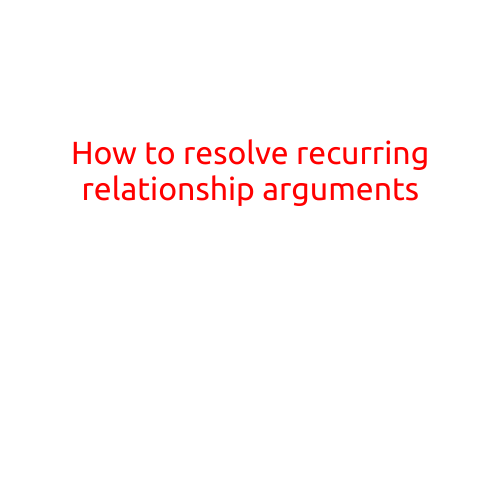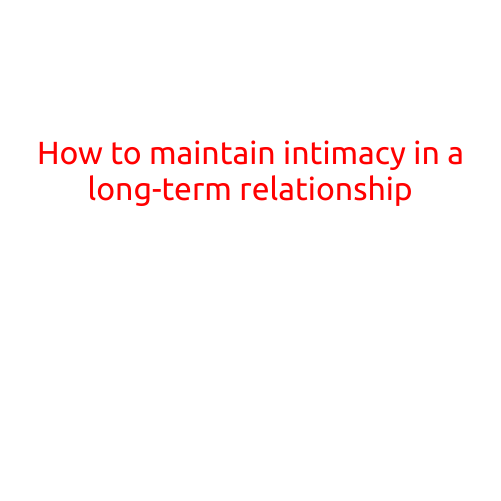
How to Resolve Recurring Relationship Arguments
Recurring relationship arguments can be frustrating, draining, and even damaging to your bond with your partner. However, with the right strategies and mindset, you can learn to resolve these conflicts effectively and strengthen your relationship. In this article, we’ll explore the common causes of recurring relationship arguments and provide practical tips on how to resolve them.
Understanding Recurring Relationship Arguments
Before we dive into the solutions, let’s talk about why these arguments occur in the first place. Recurring relationship arguments often stem from deep-seated issues, such as:
- Unresolved emotional baggage: Unaddressed emotional wounds from past experiences can resurface in relationships, leading to misunderstandings and hurtful conflicts.
- Miscommunication: Misunderstandings can arise when couples fail to communicate effectively or use ineffective communication methods.
- Unmet expectations: Unrealistic expectations about each other, the relationship, or the future can lead to frustration and disagreement.
- Lack of empathy: Failing to understand and validate each other’s feelings can create a power imbalance and lead to resentments.
- Fear and anxiety: Deep-seated fears and anxieties can manifest in arguments, making it challenging to resolve conflicts peacefully.
Resolving Recurring Relationship Arguments
Now that we’ve identified the common causes of recurring relationship arguments, let’s explore the strategies to resolve them:
- Communicate effectively:
- Listen actively and attentively to your partner’s concerns.
- Use “I” statements instead of “you” statements, which can come across as accusatory.
- Clarify misunderstandings and ask questions to ensure you understand each other’s perspectives.
- Address unresolved emotional baggage:
- Identify the root cause of the issue and address it together.
- Practice empathy and validate each other’s emotions.
- Consider couples therapy or counseling to work through deep-seated issues.
- Set realistic expectations:
- Discuss and clarify your expectations with your partner.
- Be open to compromises and find a middle ground.
- Focus on building trust and understanding rather than trying to control or manipulate each other.
- Practice active empathy:
- Make an effort to understand your partner’s feelings and perspectives.
- Validate each other’s emotions and show compassion.
- Avoid minimizing or dismissing each other’s feelings.
- Take a break when necessary:
- Sometimes, taking a break can help calm emotions and provide a fresh perspective.
- Use this time to reflect on your own emotions and thoughts, then come back to the conversation when you’re both feeling calmer.
- Seek professional help:
- Couples therapy can be an effective way to work through recurring relationship arguments and strengthen your bond.
- A trained therapist can help you identify patterns and develop healthier communication habits.
Conclusion
Resolving recurring relationship arguments requires effort, patience, and dedication from both partners. By understanding the common causes of these conflicts and practicing effective communication strategies, empathy, and self-awareness, you can strengthen your relationship and build a stronger bond with your partner. Remember that no relationship is perfect, and it’s normal to have disagreements. However, with the right approach, you can turn those disagreements into opportunities for growth and connection.





